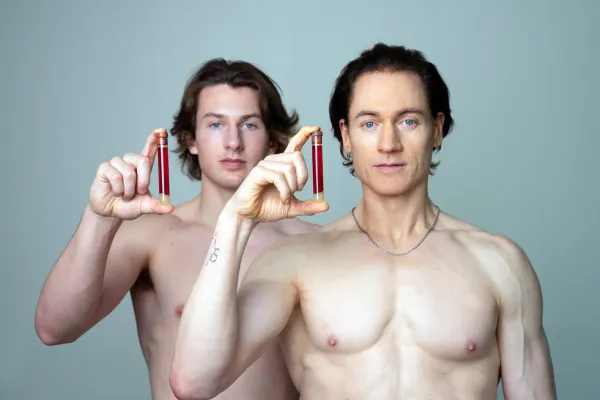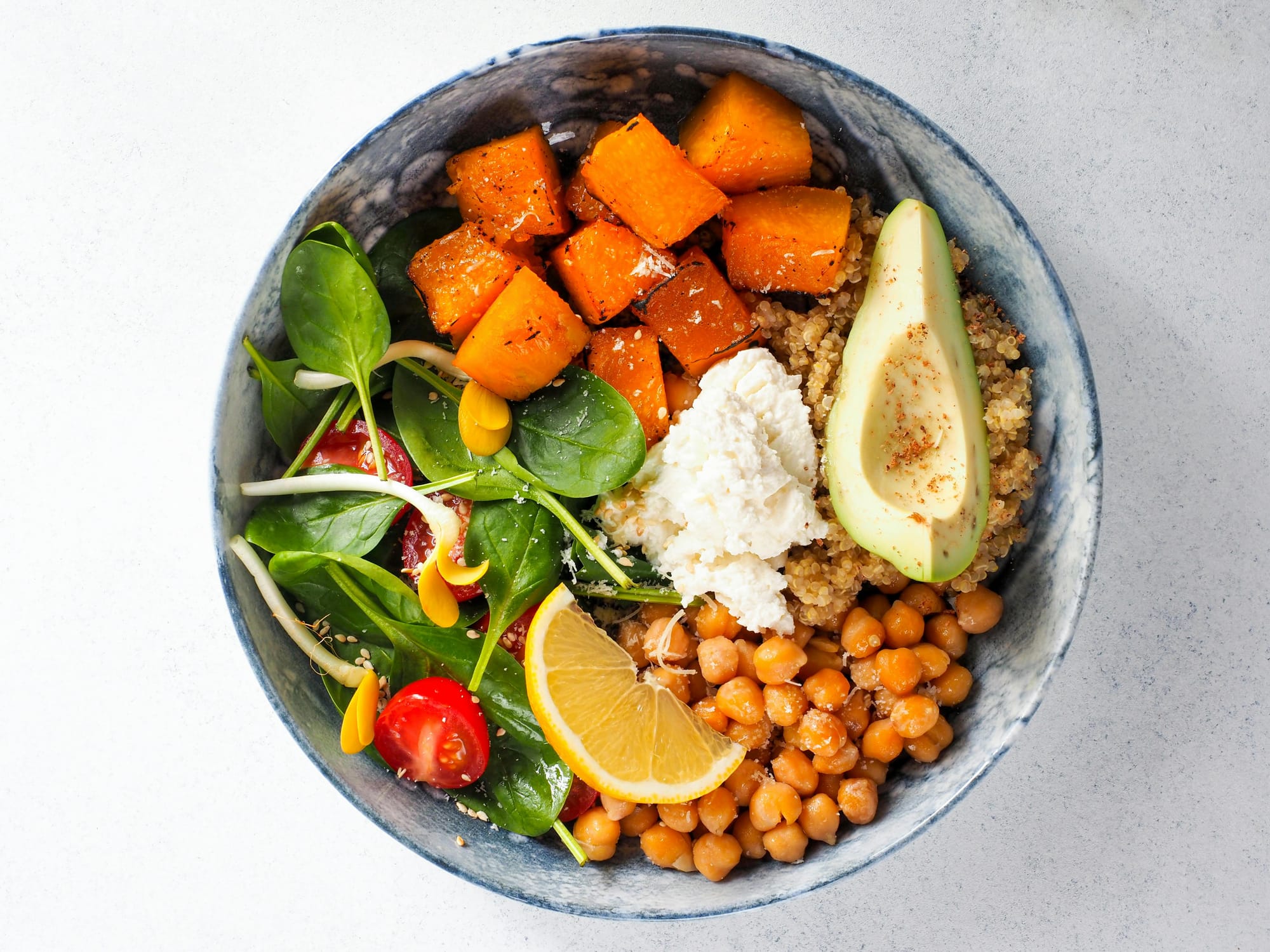
My thoughts on 'biohackers', a day of eating to hit at least 30g fibre, and some healthy kitchen/home swaps
Happy Monday! Hope you had a restful weekend whatever you decided to do.
My thoughts on biohackers
I think things in the health space are getting a little out of hand at times.
There's a growing influence of 'biohackers' who are making crazy claims about health that just confuse the average consumer.
(If you're unsure what a biohacker is or you haven't heard of it, you could define one as someone who experiments with their own body utilising a vast array of supplements, tech and other interventions in an attempt to extend their life).
Take Dave Asprey.
A well-known biohacker known for popularising putting butter in his coffee (you read that right), and making crazy claims about oatmeal, kale and other plant foods.
It's one thing discussing your personal experiences with food, but another thing to make sweeping judgements about said foods.
A recent video of his that I saw claimed that drinking green tea is bad for you because of the oxalic acid that might be a problem if you drink 10 cups of it a day (which of course, no one will).
The issue I have with many of these biohackers is this: they make the average person very confused about health, and think that it is incredibly complicated to be/get healthy - which it's not.
Don't get me wrong – there are many external add-ons for people's health that have been studied for longevity that I think would be really beneficial.
Sauna is one that I've spoken about numerous times: I think it's a great health intervention.
But much of the stuff spoken about by biohackers isn't really going to masssively move the needle when it comes to health, and in fact is just marketing.

Green tea is widely known to be one of the most health-promoting drinks you can find – as this study shows.
It's loaded with catechins and other antioxidants, and has been consumed in Asian countries for centuries (some of the longest living populations in the world too).
And actually – common sense will tell you that it's a drink that is good.
But while I personally might go and do further research on various videos that get put out there, the average person might not.
They'll see the video and believe it – only to wind up being even more confused about what is healthy or not.
We're now at a time where many of these people are claiming that foods that we know are healthy – fruits and vegetables, oats, green tea etc – are now 'bad' for us.
And while they make money and continue marketing, the general population suffers and becomes confused about what to even do regarding their health.
I'm not a fan of this madness, and I don't see it slowing down anytime soon either.
Easy ways to eat at least 30g fibre per day
You might have heard of the recent term 'fibremaxxing' – basically it's a case of getting really good amounts of fibre in your diet.
And while protein is all the rage in many circles (an important macronutrient obviously), the importance of fibre alongside shouldn't be ignored.
There's a reason we should be getting more fibre into the diet: better digestion, lowered chronic disease risk, feeds our gut microbiome (the trillions of bacteria in our gut), lowers LDL cholesterol and so on.
30g is the minimum dose we should be aiming for daily - here's a rough day of plant-based eating that could help you easily reach (and surpass) this target:
Breakfast
3/4 cup rolled oats, served with 1 cup raspberries, 1 tbsp chia seeds and a tsp of almond butter = 16g fibre
Lunch
Lentil + quinoa salad (3/4 cup of each, cooked) + 1 cup of steamed broccoli = 20g fibre (you can pad this salad as you wish, adding tomatoes, onions, herbs etc)
Dinner
Tofu power bowl with roasted sweet potato and black beans (with any other additions you want) = 20g fibre
That's actually coming out to 56g fibre here which is a great place to eventually get to.

It's important to start slow: if you are currently at 10g per day and want to bump it up, just add one of these rough meal ideas into the game.
Once you're comfortable with that, add in a second meal, add a third, and so on.
Going slow is key in order to avoid digestive discomfort, bloating etc – but once you're past this hump you'll be flying, and well on your way to better health.
Healthy kitchen/home swaps
You might have seen recently that I did a post outlining some healthy kitchen/home swaps that I have made in recent times – ranging from cookware, shower filters, tupperware etc.
I believe that the things we have daily exposure to matters; plastic being a daily staple in many kitchens could potentially be more problematic than we think.
A recent study on microplastics – of which we find a ton in plastic tupperware, cookware and more – have shown that they have been found in arteries and blood vessels, increasing the risk of heart attacks and strokes through oxidative stress and inflammation.
Not to mention potential issues with endocrine function (the system that releases hormones), and reproductive function.
While there are many changes we can make, I think the three most important ones are as follows:
- throw out your plastic chopping board and change it to wood
- change your tupperware from plastic to glass
- switch your spatulas and other cooking utensils from plastic to either stainless steel or non-laminated wood
Given that these are items that are used almost daily, making these three switches over time could dramatically reduce your exposure to microplastics – and potentially lead to a healthier life.
Hope you have a great week! I have two things that I ask of you:
- If you found this email useful, I want you to send it to two friends who you think might get value from it
- Follow me on Instagram, X (Twitter) and TikTok to keep up-to-date with all of my recipes, information and health tips to help you live a better life
Stay healthy,
Jeff